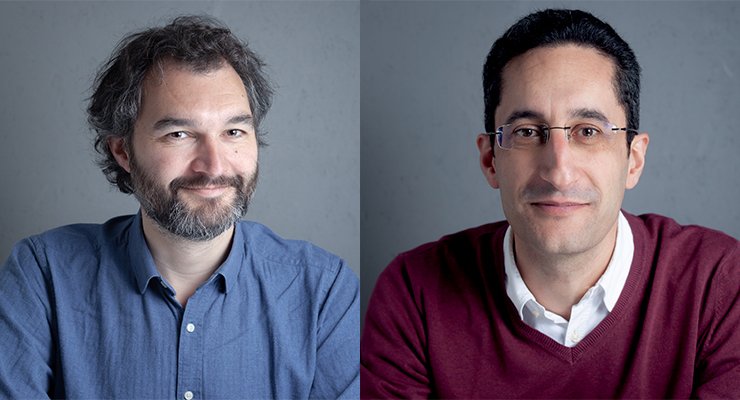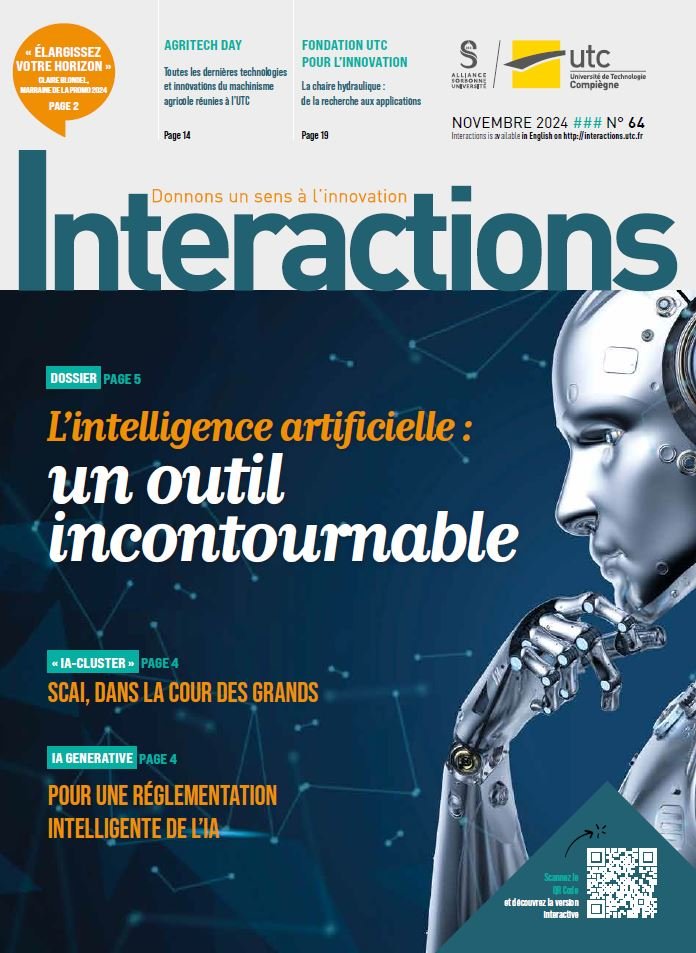Pedagogical innovations & Sustainable development

Issues related to sustainable development were not absent from teaching at UTC. The ‘SD Reset’ minor was created in 2012. Since then, the need to go further has arisen with the creation, in 2022, of the compulsory CC for all first-year IS 00 students and the ‘Ingénierie Soutenable’ (Sustainable Engineering) label, which cuts across the 5 majors’ branches of UTC.
Hugues Choplin, a lecturer-cum-research scientist, in the field in philosophy and sociology, is the coordinator of the ‘Ingénierie Soutenable’ label, co-piloted by ‘referent’ teacherresearchers in all the majors’ branches of UTC and is currently followed by nearly 100 students from these five branches. A label set up following the founding, in 2020, of the Collectif d’Ingénierie Soutenable (CIS) and, at the end of 2022, of the Collectif LowTech (CLT).
What makes these groups special? “Firstly, they are groups that include students and lecturers, each playing an equally important role. Secondly, they are driven by ‘radical’ demands in the noble sense of the term. In other words, the idea is to look at the roots of the way we operate and see how we can change them, for example our means of mobility, in the direction of greater sobriety”, explains Hugues Choplin.
How can we transition towards greater sobriety? This is the question posed by these groups, who believe that Low-Techisation could be one of the ways of achieving sobriety. What do we mean by Low-Techisation? “It’s about transforming high-tech systems to meet three requirements: sustainability, sobriety and the individual or collective appropriation of technical systems. This “low-tech” transformation requires a priori interdisciplinary “High Science” and, above all, a different sense of innovation! Firstly, we need to think about and invent more sustainable devices, such as computer cards made from flax fibre. Secondly, we need to question our lifestyles and open up new possibilities (“utilities”). For example, a car could go from being an individual asset to become a shared asset. Finally, we need to innovate in new ways, by making systems that people can easily appropriate, repair if necessary and so on,” he stresses.
Inter-semester seminar and IS00
Developing sustainable engineering is at the heart of the thinking of a growing number of UTC lecturers and, increasingly, students. This approach requires pedagogical innovations in both training and research. For example, since the start of the 2022 academic year, IS00, a compulsory CC has been introduced for all 1st year engineering students (TC01) in which various laboratories, including Costech, collaborate. What is the aim of this course? “It’s to ensure that all students share a common language on environmental issues, which cover both techno-scientific and socio-economic aspects,” explains Hadrien Coutant, a sociologist at Costech.
In addition, the GE90 inter-semester seminar, which historically focused on issues related to international economics and management, has been completely overhauled. “Open to all students but also to colleagues from other disciplines, David Flacher and I have decided to refocus it on environmental issues. Each year, in January, we explore a given theme in an interdisciplinary way. This year, for example, we tackled the theme of ‘living things’. At the end of the seminar, the students, in groups of three or four, supervised by David Flacher, Hugues Choplin and myself, write a dissertation on a subject of their choice but related to the theme we all chose to address,” explains Hadrien Coutant, who co-leads the seminar with David Flacher.
Erasmus Mundus Masters
On the strength of his experience with the first Erasmus Mundus Master’s degree that he set up at the University of Paris XIII, David Flacher decided to repeat the exercise as soon as he was admitted to UTC in 2017.
What is so special about an Erasmus Mundus Masters course? “We offer Master’s course leaders in different European countries the chance to work together to build an integrated course on a trans- European scale. If it is selected, this course will benefit from European funding, in particular grants, more than three quarters of which are reserved for students from outside Europe. In the EPOG+ master’s programme, run by the UTC, students spend the first year of the master’s programme with one or two European partners, and the second year in France. It’s a showcase for European higher education on a global scale,” explains David Flacher, Professor of Economics.
Alongside UTC, eight main partners award degrees and nearly forty associates contribute to training. As the lead partner for the master’s programme, UTC’s main partners include the Sorbonne Université cluster and Université Paris-cité in France, the Universities of Turin and Rome 3 in Italy, the Vienna University of Economics and Business in Austria and the Berlin School of Economics and Law in Germany.
Associate partners include academic players from all over the world, as well as non-academic institutions such as the French Development Agency, the Intercontinental Network for the Social Solidarity Economy, CEPAL, one of the UN’s five regional economic commissions, and UNESCO. “These are associate partners who can welcome students who wish to do so for their end-of-year Master’s dissertation, depending on their project”, he adds. The Erasmus Mundus Masters attracts more than 1 200 applicants of over 120 different nationalities each year, for a total of almost 50 places. What does the Erasmus Mundus Master’s programme involve? “It is built around three major courses. One major is ‘Innovation, knowledge and digital transition’, the second is ‘Socio-economic, macro-economic and financial transition’ and the third is ‘Sustainable development’. Students who choose a major become specialists in the field concerned. But our aim is above all for them to work together, whatever major they choose. For example, a student studying innovation issues should also be very familiar with ecological issues or the macro-economic problems that this could pose, so that his or her thinking on economic policies is relevant,” concludes David Flacher.




